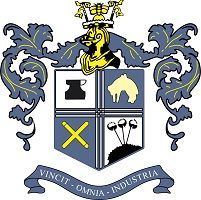
George Ross,

If there was in the early days of professional football a blue-print for a player it might be half-Scots, half-Lancastrian, Scotland and North Lancashire being the two locations where, not forgetting the contribution from Sheffield, the working class game of the Association variety first began to put down roots. Of course, none appeared, at least not immediately. How could he. Scots came south to take, some to mix the Scottish game with what was showing shoots in Preston, Blackburn, Burnley and the villages around and between, some just to find better work in the mills but they were just that, Scots. It would need the best part of a generation more for the blend to take place, the epitome, albeit almost under the radar, being George Ross.
Wikipedia says Ross was born in 1869. He was. And in Mulbairn, He wasn't. It also, this time correctly, has him playing, a one club man, for Bury from 1894 until 1906. Moreover, for Bury, founded in 1885 as from the start a professional club, the rise, a good performer in the Lancashire League from formation in 1889 until 1894 and election to the Football League, was swift. Promotion came at the first attempt, top of the Second Division, with a nine point lead over second-placed Notts County and winning the play-off. And as the club was to work its way up the table but never reach League heights it was, however, in 1900 to reach the FA Cup Final, there to face Southern League Southampton.
And throughout those Football League campaigns Ross had been there. He had, aged already twenty-four, joined Bury itself in 1894 from its feeder club The Unitarians going straight into the first-team, a half-back, in a squad of twenty that included, on the face of it, eleven Scots with Ross, who was to play every game, shown as English. And he would remain in the first team for the next five seasons as the club worked its way up the table, he playing on the left of a three, including the date at not yet Wembley but Crystal Palace.
The match itself proved to be something of a stroll. Bury would win 4:0 and do it with ostensibly four Scots in its eleven. Glasgow's Jasper McLuckie would lead the line, scoring the first in nine minutes and the third in twenty. The full-backs were Johnny Darroch and Tommy Davidson from Bonhill and West Calder respectively. And the team was captained from right-half by Falkirk's Jack Pray. But he would return to Scotland at the end of the following season and eventually emigrate to Canada, with the armband now taken up by Ross as the team, restructured around him, missed a year but again reached the FA Cup Final in 1903.
To be played once more at Crystal Palace the opponents this time were Derby, admittedly weakened by the absence of Steve Bloomer, but nevertheless on the face of it good opposition. At the end of the season, as Bury would achieve eighth place, Derby would be ninth. But on the day if two years earlier had been a stroll, this was in the end almost a walk-over. For the Shakers all the former Scots gone, two others in, the scoring was opened in twenty minutes, Ross himself the man not so much to fire but loop home. The Derby 'keeper Jack Fryer, had insisted on playing but was unfit and could not get to the shot. And in the second half worse was to come. He was forced to come off for a period, by which time his team was already three down and then would ship three more; 6:0 the final score with two other attempts coming off the woodwork and a penalty denied.
It was therefore hardly surprising that after-match comment was that the game had been a farce. But Ross nevertheless could say for the three year that remained of his playing career, indeed for the rest of his life, that he captained the team that won and still has won the FA Cup by the greatest margin, albeit it is a record shared since 2019 with Manchester City. But what of that life?
George William Ross would pass away in 1928 in Bury's Jericho Hospital, at the time staying at, indeed, running The Star Hotel on Drake St. in Rochdale and married to Clara nee Holt. They, whilst he was playing, had wed in Bury once more and in 1899, he, however, described not as a footballer but a "Cotton Overlooker". Moreover, after finishing playing he, they are in 1911 recorded as running the same hotel, she Yorkshire-born but, and here is the clue, he from Mulben in Scotland. Furthermore, in 1901 the couple had been living at 42, Devon St. in Bury, he again born in Mulben, in 1891 he is a Cotton Weaver, also in Bury and, like his parents, David and Margaret, born in Scotland, his father a Police Sergeant, in 1881 he is a school-pupil in Darwen, his father a Police Constable, and in 1871 he is one year old, also in Darwen but from Aberdeen, and his father also in the police.
In fact by Aberdeen is meant Aberdeenshire and there is one more clue. His birthplace is give as Boharm, now in Moray. It is a rural area with the River Spey to the south-west and the village of not Mulbairn but Mulben, now a cross-roads, to the north-east, itself above Keith.
And there it is. In 1866 David Ross, Agricultural Labourer, had married Domestic Servant, Margaret Rhynas. Their first two children, George the second, were born where they had been wed and then the family had moved South, from Scotland's rural north-east, where there was then no football and would be none for a good decade, to Darwen in North Lancashire, where Scots from elsewhere in the country came to play the game, some, James Love and then Fergus Suter, to stay and there, its seems, to scoop up a laddie, who by chance had the good fortune both to have talent and football feet in both camps. A
